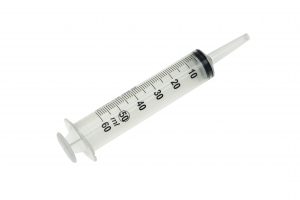The coronavirus is limiting access to treatment options addicts desperately need.
COVID-19 has claimed more than ninety lives in West Virginia over the past three months, further devastating a state that reported nearly 1,000 opioid and methamphetamine overdose deaths in the state in 2018 alone. Experts contend the coronavirus is effectively undoing advances made against the epidemic, compounding the issue by limiting treatment access. The American Medical Association (AMA) said it was “greatly concerned at reported increases in opioid overdoses in more than 30 states.”
“The number of opioid overdoses is skyrocketing, and I don’t think it will be easily turned back,” said Dr. Mike Brumage, former director of the West Virginia office of drug control policy. “Once the tsunami of COVID-19 finally recedes, we’re going to be left with the social conditions that enabled the opioid crisis to emerge in the first place, and those are not going to go away.”

He added, “Significant numbers of people have fallen out of treatment programs as support networks have been yanked away by social distancing orders. I’m a firm adherent to the idea that the opposite of addiction is not sobriety, the opposite of addiction is connection. Clearly, what we have lost with the pandemic is a loss of connection. Many of the people who were using the program either didn’t have broadband or they didn’t have cellphone service, especially those who were homeless. They just fell out of the program.”
Brumage believes the government and health institutions have shifted their focus to combating the pandemic rather than funding access to addiction treatment.
“It’s robbed the oxygen out of the room and made it the sole focus of what’s happening,” he explained. “There’s also a fatigue about the opioid crisis. You can think of COVID-19 as a hurricane whereas the opioid crisis is more like global warming. It’s happening, it’s slow, it’s dangerous, but it’s not happening at the same speed and scale as the coronavirus is having right now.”
Back in March, President Donald Trump warned of the short- and long-term effects of the pandemic including limited access to drug treatment, stating, “You’re going to have tremendous suicides, but you know what you’re going to have more than anything else? Drug addiction. You will see drugs being used like nobody has ever used them before. And people are going to be dying all over the place from drug addiction.”
This statement hit close to home for Emily Walden, who lost her son to an opioid overdose and now heads Fed Up!, a group campaigning to reduce high opioid prescribing levels. She said, “Congress immediately acted with coronavirus to help those that lost their jobs, to make sure that people were taken care of and it was addressed properly. Look at the difference with the opioid epidemic, which has largely been ignored by our federal government for twenty years.”
Brumage agrees, saying, “The difference between getting COVID and dying of an overdose is stigma around drug use. This has been ingrained across the United States – that people using drugs are somehow seen as morally deficient – and so it becomes easier to…alienate those people.”
Sources:
Coronavirus Pandemic Compounds Another Ongoing Crisis: The Opioid Epidemic
‘Opioid overdoses are skyrocketing’: as Covid-19 sweeps across US an old epidemic returns


Join the conversation!